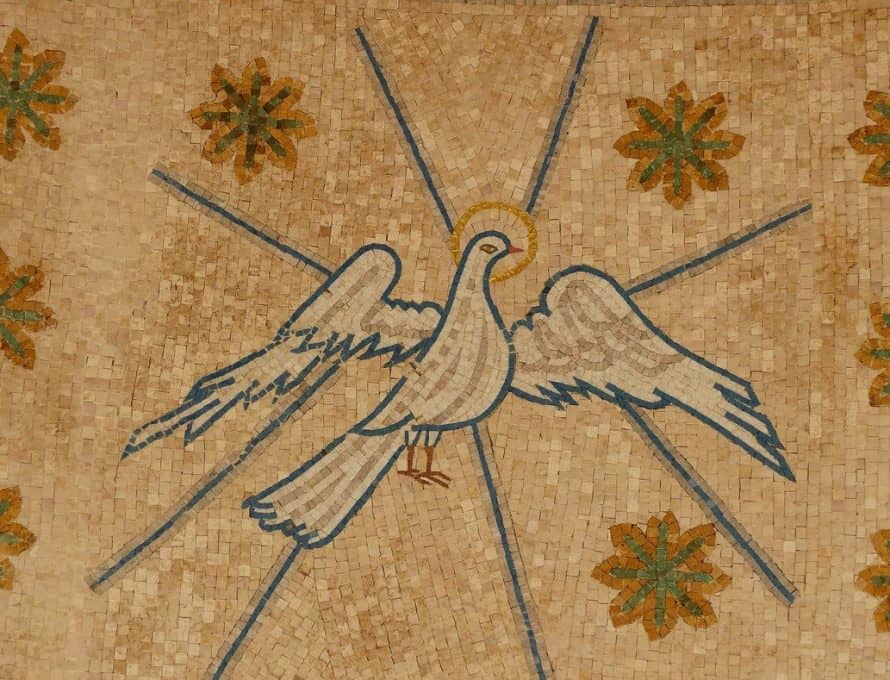This is another in a series of excerpts from “What Every Christian Should Know About the Trinity,” published by the MBC’s High Street Press (visit highstreet.press).
In some ways, the Holy Spirit is the neglected, if not forgotten, member of the Trinity.
The biblical doctrines of foreknowledge, election, predestination, and adoption awaken us to the eternal love of God the Father.
Through the Incarnation, the second person of the triune Godhead becomes flesh and pitches His tent with us (John 1:14). He experiences in full measure what it means to be human, including facing temptation – yet without sinning so that He may clothe us in God’s righteousness (2 Cor. 5:21).
Christians are said to have a personal relationship with Jesus Christ and to be the adopted sons and daughters of God the Father.
But where is the Holy Spirit in all of this? As we know from Scripture, none of the persons of the Godhead acts alone. As such, the Holy Spirit is a co-equal and co-eternal partner in all of the Trinity’s work.
So, it’s important for us to understand how thoroughly the Bible depicts both the personhood and deity of the Holy Spirit. In the next column, we focus on the Spirit as a person, for without personhood the Spirit cannot be divine. Then, in the following column, we show from Scripture how this person possesses all the attributes of deity found in both the Father and the Son.
Embracing a biblical view
The world’s major religions recognize the Holy Spirit, as do the most popular forms of counterfeit Christianity, yet they define the Spirit in ways that deny His personhood, His deity, or both.
For example, Islam depicts the Holy Spirit as none other than the angel Gabriel, who delivered the Qur’an to the prophet Mohammad.
Jehovah’s Witnesses deny both the personhood and the deity of the Holy Spirit, referring to Him as “holy spirit” and likening Him to a powerful, impersonal force.
And Latter-day Saints distinguish between the Holy Ghost, who is personal, and the Holy Spirit, which (sometimes) is not. These views do not align with Scripture.
When we explore the personality of the Holy Spirit, it’s helpful to ask: Does the Holy Spirit offer evidence of personhood? Does He speak, use personal pronouns, have a will, and so on? The answer, of course, is a resounding yes.
In numerous passages of Scripture, the Spirit uses personal pronouns in reference to Himself (for example, Acts 10:19-20; 13:1-2). Jesus also uses personal pronouns to speak of the coming Holy Spirit (for example, John 15:26; 16:13-14).
According to Jesus, the Holy Spirit arrives, guides, discerns the truth, hears and speaks, discloses future events, testifies about Jesus, and glorifies Him – all demonstrations of personhood.
The New Testament writers further confirm the personal activities of the Spirit. He counsels, prophesies, empowers, confirms our adoption into God’s family, distributes spiritual gifts, and much more.
The biblical evidence for the personhood of the Holy Spirit is clear; that is, the Spirit is a He, not an it. Once the Spirit’s personality is established, His deity is a logical, and biblically faithful, next step. So, what do we see the Spirit doing that only God can do?
For starters, the Holy Spirit creates (Gen. 1:2; Ps. 104:30). He also demonstrates omniscience and omnipresence, displaying qualities that establish Him as co-equal and co-eternal with the Father and the Son (Ps. 139:7-8; 1 Cor. 2:10-11). What’s more, the Spirit shares a divine name, symbolic of divine presence, with the other members of the triune Godhead (Matt. 28:19).
Additional evidence of the Spirit’s deity comes in several passages that attest to His divine power (for example, Luke 1:35; John 16:8-11; Rom. 8:11; 15:18-19).
We examine the personhood and deity of the Holy Spirit in more detail in the next two columns.
While the Spirit in some ways is the most neglected member of the Trinity, Scripture shows Him to possess all the attributes of deity – eternality, omnipotence, omniscience, and omnipresence, to name a few – while simultaneously exhibiting all the traits of divine personality as the Creator of all and the Counselor to those who follow Jesus.
Next: The personhood of the Holy Spirit

